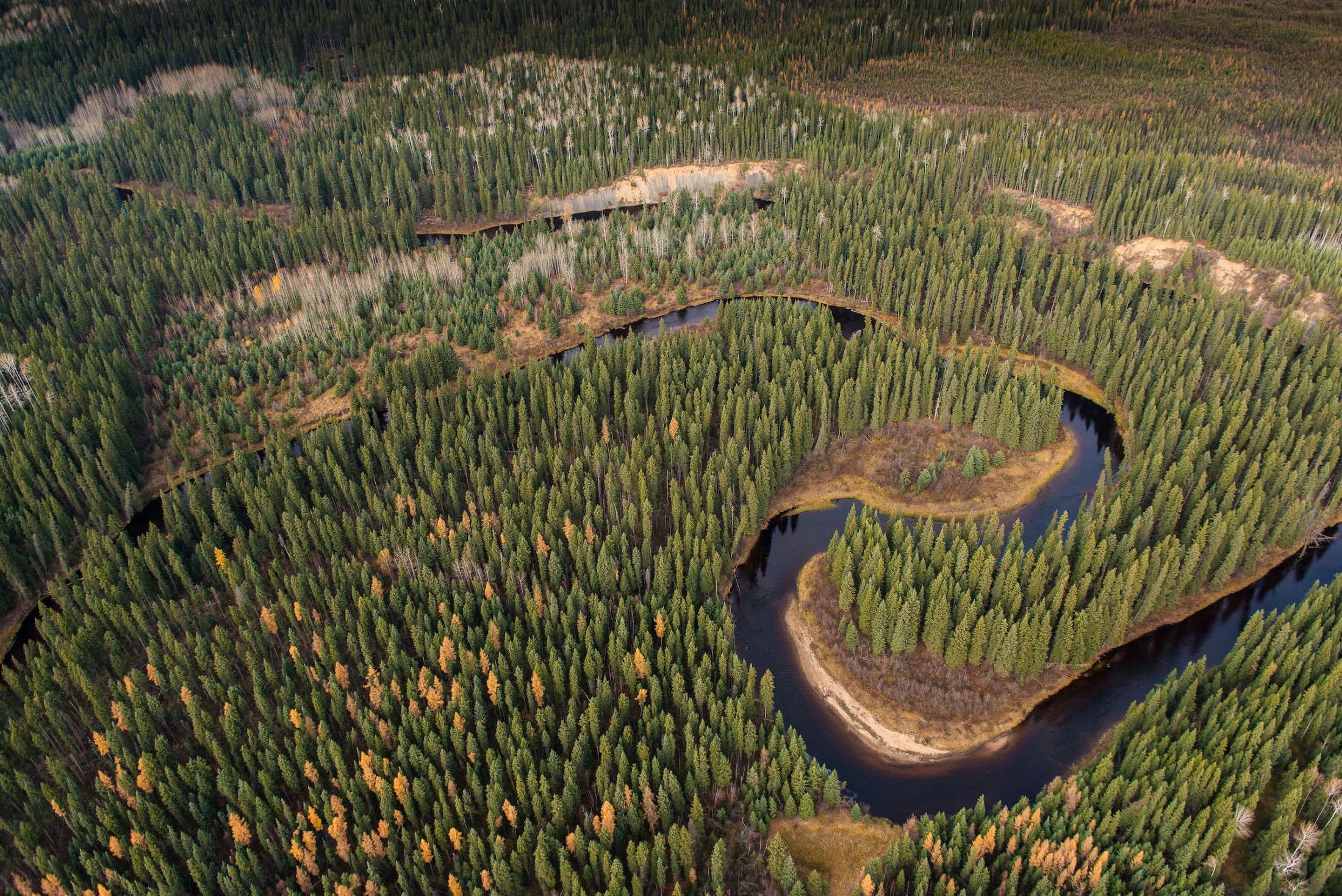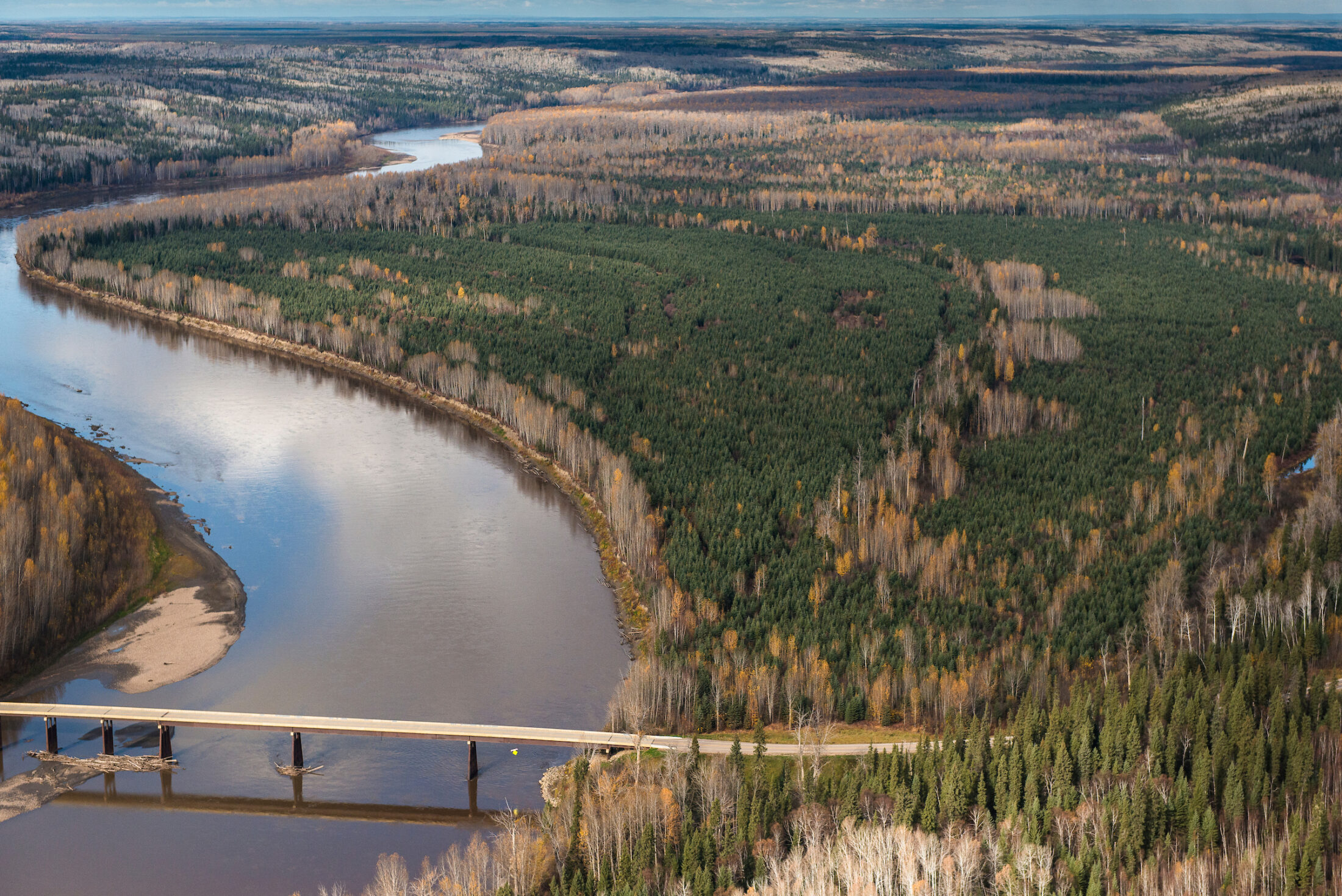
Water determines the Great Lakes Region’s economic future
Climate change, geopolitics and business opportunities power a blue economy
The Fort Nelson First Nation and the Northern Rockies Regional Municipality are voicing their support for a proposed wood pellet facility after a Canadian Centre for Policy Alternatives report criticized the project, which involves cutting down vast tracts of forest and turning them into pellets for export overseas.
Most wood pellets are made with waste materials like branches and trees that can’t be used to produce lumber, combined with milling byproducts such as wood chips and sawdust. But Peak Renewables doesn’t have access to byproducts and plans to log whole trees for pellets, which would be shipped overseas and burned to produce heat and electricity.
The report said the plan would not do enough to support Indigenous and non-Indigenous communities, but those communities disagree. Last year, the First Nation signed an equity agreement with Peak Renewables to ensure it has a say in logging activities and plant operations.
“Without talking to us, conclusive statements about Fort Nelson First Nation’s forestry projects have been made by groups that are far removed from our territory,” Chief Sharleen Gale said in a Feb. 23 news release. “These statements totally fail to take into account the livelihoods of our people and our extensive land stewardship work.”
The Narwhal requested an interview with the Fort Nelson First Nation but did not receive a response prior to publication.
Northern Rockies Mayor Gary Foster told The Narwhal the majority of community members welcome the proposed pellet plant, which will create jobs and economic stimulation in a town that has suffered over a decade of recession.
“There’s always going to be a few people in any community that are going to be opposed,” he said in an interview. “And we have a few of those. But honestly, I would be shocked if it was more than five per cent of the population.”
As
The Narwhal recently reported, the province is currently considering a proposal from Canfor to transfer its logging licence to Peak Renewables, which would give the pellet company logging rights to over 500,000 cubic metres of wood per year. The public has until March 3 to comment on the proposal.
Fort Nelson residents have been struggling since 2008, when the city’s two mills shut down. The ensuing recession saw people lose their homes and businesses. For the past 13 years, the region has had very little commercial forestry activity.
There have long been calls for more jobs in the region. According to Peak Renewables, the proposed project would create 60 jobs at the plant, 300 logging jobs and 150 secondary jobs in related industries like maintenance and equipment supply. The Canadian Centre for Policy Alternatives report said the plant would only employ around 50 people and compared that to the 600 people who were employed between the two Fort Nelson mills.
Foster told The Narwhal an apples-to-apples comparison is misleading, as mills are increasingly turning to automation, which means fewer jobs are created.
“If those same mills existed here today, they would not be employing anywhere near the number of people they had employed then,” he said.
As part of its plans to build the pellet facility, Peak Renewables bought the pair of closed mills from Canfor for around $10 million last year.

The B.C. government is considering a proposal from Canfor, which owns this lumber mill in Prince George, to transfer its Fort Nelson logging licence to Peak Renewables, which would give the pellet company logging rights to over 500,000 cubic metres of wood per year. Photo: Taylor Roades / The Narwhal
Ben Parfitt, resource policy analyst for the Canadian Centre for Policy Alternatives and author of the report, said he is worried the project will lead to unsustainable logging and won’t provide the economic stimulus needed.
“From a jobs perspective and from a forest health perspective, this is not going to take the region in the direction that I think it wants to go with, which is to ensure that there is a maximum number of jobs at the local level that help to stimulate the local economy and that they have good healthy forests now and in the future to work with,” said Parfitt, who is also a freelance contributor to The Narwhal.
In a news release circulated with the report, the Canadian Centre for Policy Alternatives, Conservation North and Stand.Earth called on the province to delay its decision and consider other uses for the forest that could create more jobs while using less wood.
But the Fort Nelson First Nation said the licence transfer and proposed pellet plant align with its long-term goals to stimulate the economy and rebuild the local forest industry.
“Our partnership allows us to own these opportunities, to create sustainable jobs and to chart a sustainable course for future generations,” Gale said in the statement. “The partnership is committed to both existing and future local value-added opportunities. This is reconciliation in action.”
The nation and the Northern Rockies Regional Municipality also manage B.C.’s largest community forest, which was set up in 2019 and includes a licence to log over 200,000 cubic metres per year.

Huge swaths of forest in northeast B.C. could be cut down and ground up to make wood pellets to be burned for heat and energy overseas if the province approves a logging licence transfer. Photo: Garth Lenz / The Narwhal
In her statement, Gale called out critics for ignoring the benefits the pellet plant would bring to the region.
“Public statements by people far removed from our community and the project have wholly failed to mention the project’s strong commitment to the development of both existing and future local value-added businesses, including Fort Nelson First Nation forestry tenures and the Fort Nelson First Nation community forest partnership with the Northern Rockies Regional Municipality.”
Parfitt emphatically agreed that the Fort Nelson First Nation should control decisions made on its territory. He said his recommendation is for the province to hand over management of the entire Fort Nelson timber supply area to the Indigenous community and its local partners. The nation could then proceed with supporting Peak’s pellet plant or pursue other options. The province has never done this before and Fort Nelson’s harvestable forest is the second-largest in B.C.
The timber supply area spans nearly one million hectares, which is about twice the size of P.E.I., from which over 2.5 million cubic metres of trees can be harvested every year.
“There is nothing stopping the provincial government from turning the entire TSA over to the First Nation and to the non-Indigenous community in the region in order for them to have a substantial building block for figuring out what a new forest industry in the region could look like.”
But Gale said its choice to partner with the pellet company and support the licence transfer is an inherent right.
“Since Canada forced us onto reserves and claimed our land for themselves, we have been told how we should live in our own territory. We unquestionably hold the best knowledge of our territory and an unalienable right to self-determination and to freely pursue our economic, social and cultural development in our lands.”
Read more: Fort Nelson First Nation lands permit to transform aging gas field into geothermal energy project
Foster said the biggest barrier to rebuilding a forest-based economy in Fort Nelson is the nature of the forests themselves.
“We have valuable conifer in amongst not very valuable aspens,” he said. “In order to get at that conifer, you have to remove the aspen and you have to find a place for it — you can’t ship it down the rail line because it doesn’t have much value.”
He said this is where Peak Renewables comes in. The company would log both trees, using the lowest-value and waste material for its pellet production.
“Once you free up that conifer, then you’ve got a wood of sufficient value that you can ship out or manufacture into higher-value commodities,” Foster said.

Peak Resources wants to establish a pellet plant in Fort Nelson, B.C. It would join several others in northern B.C., like this one in Prince George. Photo: Dominick DellaSala
Peak Renewables told The Narwhal in an emailed statement that it would make sure trees that can be used for other purposes won’t be ground up for pellets.
“We expect that the younger, high-quality aspen will go into either veneer or furniture stock, with any remaining material (branches and tree tops) being used for pellet production.”
Peak Renewables added it would support local operations whenever possible.
“[Spruce] will firstly go to the small independents in Fort Nelson and surrounding area, and then to other mills to support jobs in northern B.C. It just makes financial sense to try to use the logs as close as possible to where they are harvested.”
Foster said without a facility like Peak’s proposed pellet plant, it wouldn’t be economically feasible to log the high-quality wood.
“This is a first step and it’s a very important first step.”
The proposed logging licence transfer has other critics. In a Feb. 22 article for Canadian Biomass, Gordon Murray, executive director of the Wood Pellet Association of Canada, said buyers of B.C. pellets are concerned about the proposal and logging intact forests to produce pellets won’t be well-received in the marketplace.
“To put it bluntly, there is no market for pellets from the logging of vast forests for the sole purpose of pellet production,” he wrote. “WPAC does not support wood pellet manufacturing proposals that are predicated on the large-scale harvesting of forests for the sole purpose of pellet production.”

Critics say there isn’t a market for wood pellets made from whole trees, such as those that would be cut down in this Fort Nelson forest if B.C. approves a logging licence transfer. Photo: Garth Lenz / The Narwhal
Gary Fiege, president of the Public and Private Workers of Canada Union, which represents forestry workers, told The Narwhal there are better options. He said the aspen could be logged for oriented strand board, or OSB, adding that a mill to manufacture this product in nearby Fort St. John recently announced it was reopening after shutting down in 2019.
OSB, which is similar to plywood, is widely used in construction and known for its structural strength. Fiege said if the aspen were used to produce OSB, it would not only provide more direct jobs at a mill, it would also stimulate the local and regional economy.
But after 13 years with no proposal to restart the mills, locals are ready for an alternative.
“The Fort Nelson First Nations and the Northern Rockies have been very clear [we will] make sure that our forests are sustainable, that we don’t over-log this area,” Foster said. “I’m very optimistic that as this takes hold, we will see more and more value-added [manufacturing] come into the community.”
Get the inside scoop on The Narwhal’s environment and climate reporting by signing up for our free newsletter. On a warm September evening nearly 15...
Continue reading
Climate change, geopolitics and business opportunities power a blue economy

10 billion litres of sewage are dumped into Winnipeg’s lakes and rivers each year. Some...

Court sides with Xatśūll First Nation, temporarily halting Mount Polley mine waste expansion
